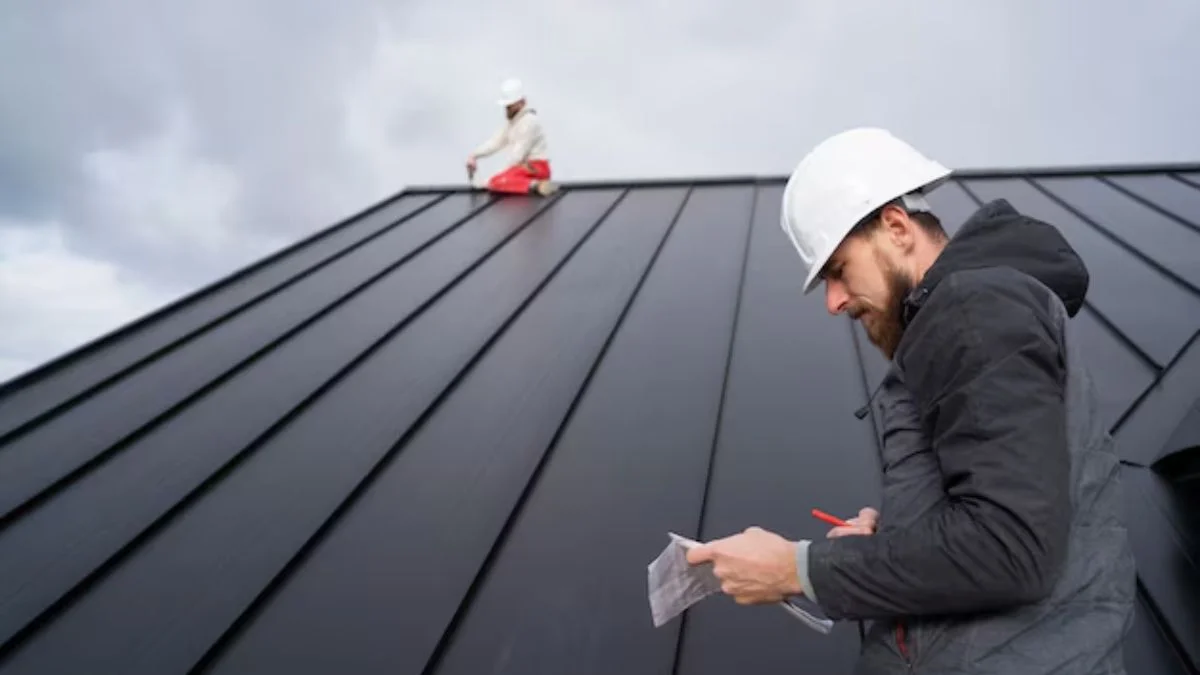As a homeowner, understanding the condition of your roof is crucial. It protects your home from the elements and contributes to your home’s overall integrity. However, determining when to repair or replace your roof can be a daunting task. This guide will help you evaluate the condition of your roof, identify signs of damage, and make an informed decision.
If you find yourself in a situation where you’re unsure about your roof’s condition, you can try this out by consulting a professional roofing contractor. They can provide a thorough inspection and help you decide on the best course of action.
Signs Your Roof May Need Repair
Before jumping to conclusions about replacing your roof, it’s essential to assess whether repairs will suffice. Here are some common signs that your roof may need repair:
1. Missing or Damaged Shingles
Check your roof for any missing, cracked, or curling shingles. These issues can expose your roof to moisture, leading to further damage. If only a few shingles are damaged, a repair may be all you need. However, if you notice widespread damage, replacement may be necessary.
2. Leaks and Water Stains
If you spot water stains on your ceilings or walls, it’s a clear indicator that your roof has leaks. Minor leaks can often be repaired without needing a full roof replacement. However, if the leaks are extensive, a replacement might be the more prudent choice.
3. Granule Loss
Inspect your gutters for shingle granules. If you notice a significant amount of granules accumulating, your shingles may be losing their effectiveness. While minor granule loss can be repaired, significant loss often indicates that the shingles are nearing the end of their lifespan.
4. Moss and Algae Growth
Moss and algae can grow on roofs, especially in shady areas. While it may not seem like a major issue, these growths can trap moisture and lead to roof decay. If the growth is localized, you can remove it and treat the area. However, if it’s widespread, it might indicate that the roof is reaching the end of its life.
5. Sagging Roof Deck
A sagging roof deck is a sign of serious underlying issues, often related to structural damage. If you notice any sagging, it’s crucial to contact a roofing professional immediately. This could require a full roof replacement rather than just repairs.
6. Age of the Roof
Consider the age of your roof. Most roofs have a lifespan of 20-25 years, depending on the material. If your roof is approaching or has surpassed this age, it may be time to consider replacement, even if it appears to be in good condition.
When to Repair Your Roof
Repairs are usually the best option in the following situations:
Minor Damage
If you have only a few damaged shingles or a small leak, repairs can be a quick and cost-effective solution. It’s important to address minor issues promptly to prevent them from escalating.
Limited Budget
If your budget is tight, repairing specific areas can extend the life of your roof without the hefty cost of a full replacement. Just be aware that repairs might not provide a long-term solution, especially if the roof is nearing the end of its life.
Temporary Solutions
If you plan to sell your home soon, it may be worth repairing the roof to make it more appealing to potential buyers. However, be transparent about the roof’s condition, as buyers may still request an inspection.
When to Replace Your Roof
There are scenarios when a full roof replacement is necessary:
Extensive Damage
If a large portion of your roof is damaged or you have multiple leaks, replacing the roof may be the most sensible option. This will provide a fresh start and ensure your home is well protected.
Aging Roof
As previously mentioned, if your roof is nearing or has exceeded its expected lifespan, it’s time to consider replacement. An aging roof is more susceptible to damage and leaks.
Increased Energy Bills
If you’ve noticed a significant increase in your energy bills, your roof might not be providing the insulation it once did. In this case, a replacement can improve energy efficiency and lower your costs in the long run.
Planning for the Long Term
If you plan to stay in your home for many years, investing in a new roof can be beneficial. A new roof can provide better warranties and reduce maintenance costs over time.
Factors to Consider Before Making a Decision
When deciding between repair and replacement, consider the following factors:
1. Cost
Evaluate your budget and the estimated costs of repair versus replacement. While repairs may seem cheaper upfront, frequent maintenance costs can add up over time. Replacement, though more expensive initially, can provide long-term savings.
2. Material
The type of roofing material plays a significant role in your decision. Some materials, like asphalt shingles, are more affordable and easier to repair, while others, like metal or tile, may justify a replacement due to their durability and longevity.
3. Future Plans
Consider your future plans for the home. If you plan to sell soon, repairs might be sufficient. However, if you’re planning to stay long-term, a replacement could enhance your property’s value and provide peace of mind.
4. Local Climate
Your local climate can also impact your decision. In areas prone to severe weather, a robust roof may be necessary. If your current roof can’t withstand local conditions, replacement may be the better option.
Hiring a Professional
When it comes to roof repairs or replacements, hiring a professional is crucial. A qualified roofing contractor can provide a thorough inspection and give you an accurate assessment of your roof’s condition. They can also offer recommendations based on your specific situation and needs.
Questions to Ask a Roofing Contractor
Before hiring a contractor, consider asking the following questions:
- What is your experience with roof repairs and replacements?
- Can you provide references from previous clients?
- What warranties do you offer on your work and materials?
- How will you protect my property during the project?
Getting answers to these questions can help you choose the right contractor for your needs.
Conclusion
Deciding whether to repair or replace your roof can be challenging. By assessing the condition of your roof, identifying signs of damage, and considering your budget and future plans, you can make an informed decision. Remember to consult with a professional to ensure your roof remains in optimal condition, protecting your home for years to come.
Taking the time to evaluate your options and act promptly can save you money and headaches in the long run. Whether you choose to repair or replace, maintaining the integrity of your roof is crucial for the safety and value of your home.
For more information, click here.









